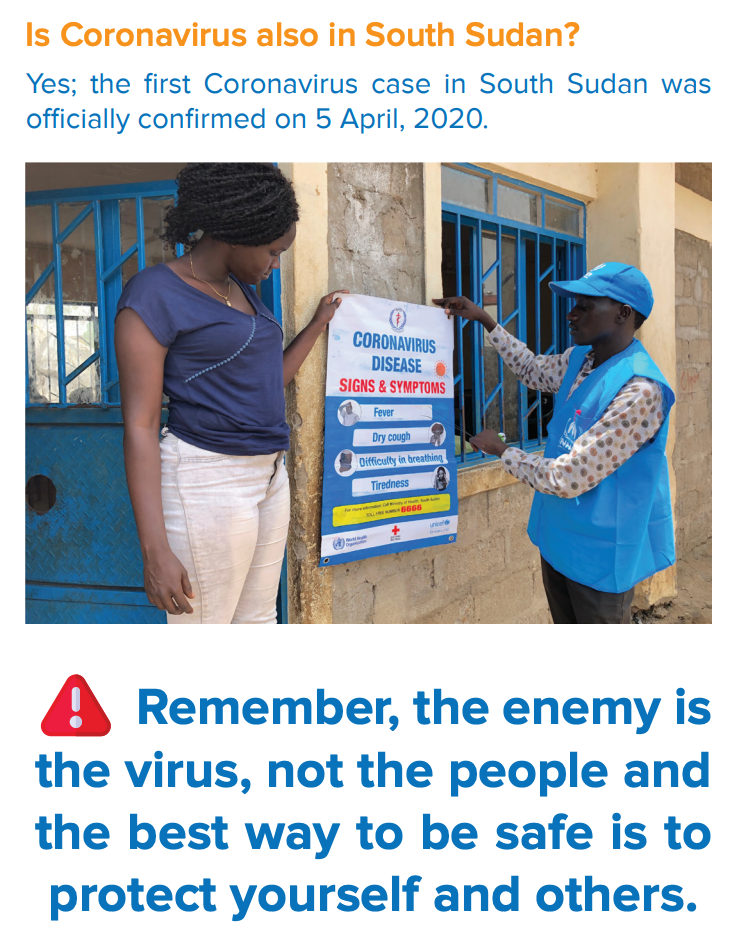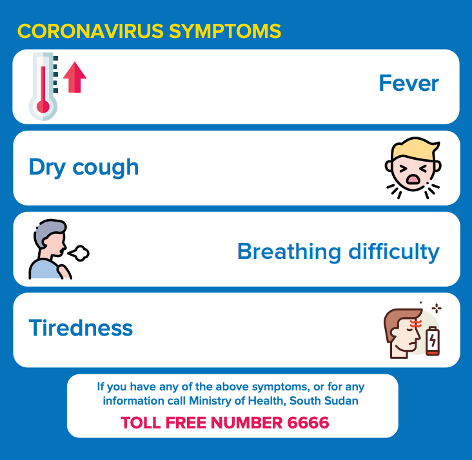



Coronavirus, also known as COVID-19, is a new highly contagious disease. On 11 March, 2020 the World Health Organization declared Coronavirus, also known as COVID-19, a global pandemic.
This virus can spread from person to person through small droplets from the nose or mouth which are mostly spread when a person with the virus coughs or exhales. These droplets land on objects and surfaces around the person. Other people then catch COVID-19 by touching these objects or surfaces, then touching their eyes, nose or mouth.
People can also catch COVID-19 if they breathe in droplets from a person with COVID-19 who coughs out or exhales droplets. As such, keeping a physical distance of at least 1 meter (3 feet) away and avoiding handshakes and hugs help to prevent contracting coronavirus. Hence, we urge you to strictly follow the advice of health experts and protect yourself from contracting this new virus.
Remember, the enemy is the virus, not the people and the best way to be safe is to protect yourself and others.
Since 11 March, 2020 the Government of South Sudan issued travel restrictions to and from South Sudan, and closed all land borders, air or water on 23 March, 2020. Only cargo planes, emergency evacuation flights and commercial flights and trucks carrying food, fuel and medical supplies are allowed. Early April, following the confirmation of 1st case, the Government of South Sudan has enforced also a curfew from 10 pm to 6 am and a travel ban within the country. These are all measures aiming at controlling the spread of COVID-19.
It is not yet known for how long. This is a new disease, and little is known about it. For now the safest thing for you and your family is to stay home / stay where you are, and observe all prevention and health measures as advised by the local authorities
The Government of South Sudan has enforced the closure of all schools, religious institutions, worshiping sites, non-essential businesses and social gatherings such as sports events, conferences, weddings, and funerals.
Funerals can take place but only few people are allowed. Repatriation of dead bodies to South Sudan will only be approved by the National COVID-19 High-level Taskforce. Prior approval must be sought before you arrange for transportation of the dead body to South Sudan.
If you observe symptoms like coughing, sneezing, flu, high fever and short breath, immediately go to the nearest health facility or call Ministry of Health toll free number 6666. Please ensure that you cover your nose and mouth with a cloth at all time, especially when sneezing and coughing, avoid hand shaking or being close to people including family members on your way to the health facility.
No. The Coronavirus preventive and response services are free of charge and accessible at any UNHCR supported health facility.